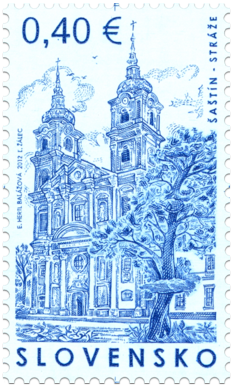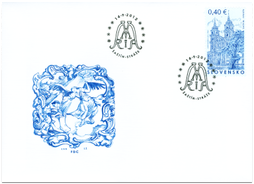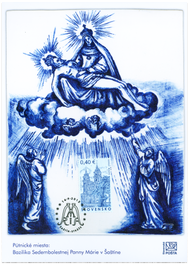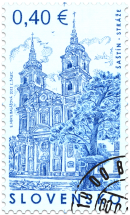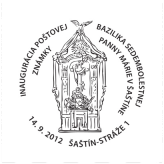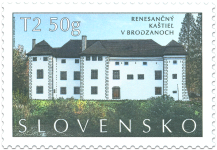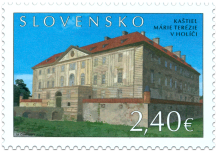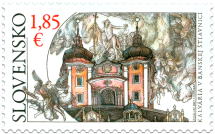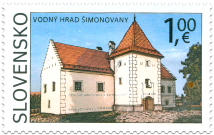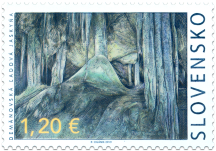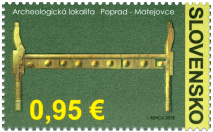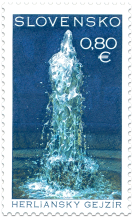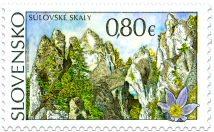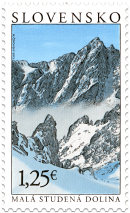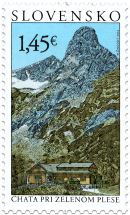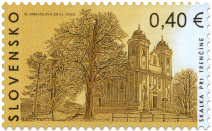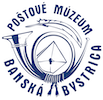522 Date of issue
14.09.2012 Face value
0.40 € Sell price
0.40 €
A wooden statue of Pieta was the gift donated by countess Czobor in 1564 and this statue became an object of folk worship. In 1732 the Šaštín Pieta was accepted as merciful and its public worshiping was approved. The Pauline order was asked to take care of the modest chapel with the statue and later they built a monumental cathedral in the Late Baroque style and adjoining monastery with the support of noble donors. The sculptural group of the Šaštín Pieta was festively moved on the marble main altar in 1762. Empress Maria Theresa had this altar built at her own expense. According to the project of F. A. Hillebrandt in 1769 – 1770 perimeter walls of the chancel with oratory were adapted and the concept of the main altar with the Pieta statue on the high tabernacle with couple of worshiping angels and cross with sagging scarf in the background were changed. It was broaden by statues of St. John the Evangelist and St. Mary Magdalene.
Imperial court painter and theatre decorator with Lorraine origins, Jean Joseph Chamant designed and realised with his helpers an illusive fresco painting creating majestic cathedral interior in 1754 – 1757. He placed figural scenes into masterfully placed illusive architectonic decoration of arches. They create an illusion of vertical breaks of the real space of vault fields into heavenly heights by painting means. Floating angels in the heaven bear tools of the Christ crucifixion and accompany the majestic personification of the Church with the symbol of Eucharist. On the vault of chancel the Celebration of the Father God on the heaven is depicted and on the vault over the organ choir the Heavenly Concert is depicted. An illusive fresco painting is also on vaults of six side chapels.
The tradition of the pilgrimage lasted even after the cancellation of the Pauline order in 1786. The importance of Šaštín as a pilgrim site was enhanced when the Virgin Mary of Seven Grievances was proclaimed the Patron of Slovakia by decree of the Holy See on 22nd April 1927. Besides the ecclesiastic, religious and cultural importance of Šaštín as a pilgrim site, the monastery and monumental cathedral is also a complex with historical monuments that belong to the most valuable masterpieces of the Late Baroque architecture and art with Central European significance.
Jozef Medvecký
© 2024 POFIS - Postal philatelic service. All rights reserved

